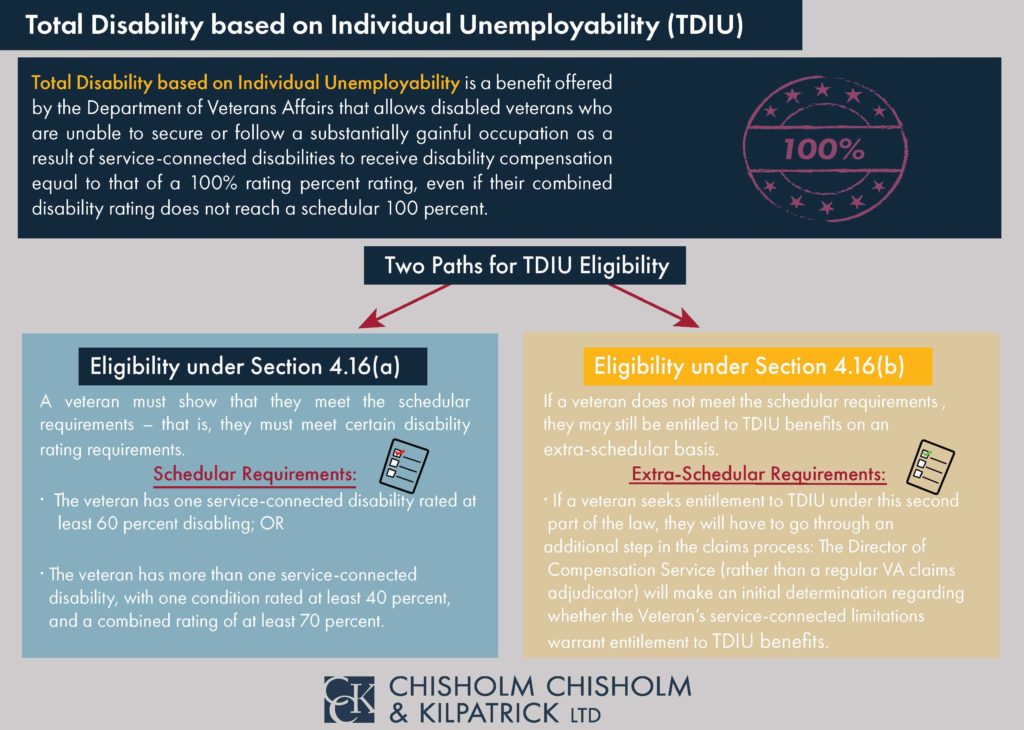Ulcerative Colitis VA Disability Ratings

CCK Law: Our Vital Role in Veterans Law
What Is Ulcerative Colitis?
Ulcerative colitis (UC) is a chronic disease resulting from an abnormal reaction of the immune system. Specifically, it occurs when the immune system causes inflammation and ulcers to the inner lining of the large intestine, as explained by the CDC in 2024.
This condition can start suddenly or begin gradually and may worsen over time. There are times where a person may not be experiencing symptoms, however these periods of remission can last anywhere from a few weeks to years.
Ulcerative colitis is categorized as an inflammatory bowel disease, or IBD. Other common types of IBD include Crohn’s disease and microscopic colitis.
Symptoms
- Stomach cramps or pain
- Weight loss
- Loss of appetite
- Bloody stool
- Diarrhea
- Sudden or urgent bowel movements
- Fatigue
- Vomiting or Nausea
- Anemia
- Fever
- Bone Problems
- Slowed growth or development, especially in children
- Colorectal cancer
Diagnosing and Treating UC
Usually, testing can help to diagnose ulcerative colitis. A doctor may first conduct a physical exam to form a diagnosis. They may also ask questions about your medical history, family history, diet, and daily activities. Some diagnostic testing may include:
- Endoscopy
- Sigmoidoscopy
- Colonoscopy
- Biopsy
- Chromoendoscopy
- X-rays
- CT scans
- MRI
The main goal of treating ulcerative colitis is to manage symptoms and help regulate the immune system to minimize symptoms and increase periods of remission. Treatment methods may include:
- Anti-inflammatory medication
- Immune system suppressors
- Diet and nutrition changes
- Surgery
Additionally, it is important to routinely check for the development of cancer if a person has ulcerative colitis. Those with UC face a substantial risk of developing colorectal cancer.

How Do I Prove Service Connection for Ulcerative Colitis?
There are several methods by which a veteran can prove service connection for ulcerative colitis, including on a direct and secondary basis.
Direct Service Connection for Ulcerative Colitis
Direct service connection is when a veteran can prove that their ulcerative colitis was somehow caused or worsened by their military service. To establish direct service connection, veterans must typically present the Department of Veterans Affairs (VA) with three key pieces of evidence:
- An in-service event, injury, or illness;
- A current diagnosis of UC by a medical professional;
- A medical nexus, or link, between your in-service event, injury, or illness and your current diagnosis.
To support the veteran’s claim for service connection, the veteran may also submit lay evidence. Lay evidence, or lay statements, can be written by the veteran or anyone who knows the veteran and can speak to their condition. Importantly, lay evidence may also be submitted by fellow service members.
Secondary Service Connection for Ulcerative Colitis
A secondary service-connected disability is a disability that resulted from a condition that is already service-connected. In claims for secondary service connection, proving a nexus is especially important.
A nexus is a medical opinion that, in cases of secondary service connection, links a veteran’s secondary disability to their already service-connected disability. The nexus between your primary disability and your secondary disability must be clearly established in order to be granted secondary service connection for the disability.
The condition may be claimed as the primary service-connected disability or the secondary service-connected disability. Below are some conditions which have been connected to ulcerative colitis:
- Ulcerative colitis claimed as secondary to Post-Traumatic Stress Disorder
- Ulcerative colitis claimed as secondary to endometriosis
- Rectal disorder claimed as secondary to ulcerative colitis
- Chronic Obstructive Pulmonary Disease (COPD) claimed as secondary to ulcerative colitis
This list is not exhaustive, as there are many additional conditions that may be linked to ulcerative colitis.
What Might a Compensation and Pension (C&P) Exam for Ulcerative Colitis Look Like?
Once a claim for ulcerative colitis has been filed, VA may request a Compensation and Pension exam, or C&P exam, to verify the veteran’s diagnosis and glean the severity of their symptoms. This exam will usually be performed by a VA physician or VA contracted physician, and may contain the following steps:
- Firstly, to schedule the C&P exam, VA will usually call the veteran or send them a letter. As such, it is crucial to ensure that VA has the veteran’s most up-to-date contact information. If VA does not have the correct contact information, the veteran might miss a C&P request. If a veteran fails to attend an exam, or fails to reschedule one they have missed, their claim could be denied.
- Prior to the exam, the examiner should review the veteran’s c-file. The c-file will usually contain any documentation that has previously been submitted to VA, as well as the veteran’s medical and military service records.
- During the exam, the examiner may ask the veteran about pain levels, the quality of their stools, and other questions related to the severity of their ulcerative colitis. The examiner may also order an endoscopy or radiologic study to confirm the veteran’s condition.
- After the exam, the examiner will compose and deliver a final report to VA, one that provides the examiner’s opinion on the veteran’s condition, its severity, and whether it is service connected. If the veteran’s UC qualifies, then VA will typically consult this report to assign the veteran an appropriate disability rating.
- Notably, if the examiner’s report proves unfavorable to the veteran’s claim, there are methods by which a veteran can protest the examiner’s findings and potentially appeal to get them overturned. For this reason and others, it is often beneficial for the veteran to request their C&P exam results from VA.
Additionally, the veteran may use a DBQ, or Disability Benefits Questionnaire, to bolster their claim. A Disability Benefits Questionnaire is a form created by VA so that the veteran may address important aspects of their condition, such as symptoms, severity, possible causes, and relation to other disabilities. The veteran may also have their private doctor fill out a DBQ for them.

How Does VA Rate Ulcerative Colitis?
VA rates ulcerative colitis under 38 CFR § 4.114 – Schedule of Ratings – Digestive System. Specifically, this condition is rated with Diagnostic Code 7323. The rating criteria is the same as Diagnostic Code 7326, which is used to rate Crohn’s disease.
Ratings for UC range from 10 percent to 100 percent, with compensation correlating to symptom severity. Below are the criteria for each specific rating:
- 100 percent – “Severe inflammatory bowel disease that is unresponsive to treatment; and requires hospitalization at least once per year; and results in either an inability to work or is characterized by recurrent abdominal pain associated with at least two of the following:
- six or more episodes per day of diarrhea
- six or more episodes per day of rectal bleeding
- recurrent episodes of rectal incontinence
- recurrent abdominal distension”
- 60 percent – “Moderate inflammatory bowel disease that is managed on an outpatient basis with immunosuppressants or other biologic agents; and is characterized by recurrent abdominal pain, four to five daily episodes of diarrhea; and intermittent signs of toxicity such as fever, tachycardia, or anemia”
- 30 percent – “Mild to moderate inflammatory bowel disease that is managed with oral and topical agents (other than immunosuppressants or other biologic agents); and is characterized by recurrent abdominal pain with three or less daily episodes of diarrhea and minimal signs of toxicity such as fever, tachycardia, or anemia”
- 10 percent – “Minimal to mild symptomatic inflammatory bowel disease that is managed with oral or topical agents (other than immunosuppressants or other biologic agents); and is characterized by recurrent abdominal pain with three or less daily episodes of diarrhea and no signs of systemic toxicity”
Can I Earn Total Disability for Ulcerative Colitis?
Yes, veterans who are prevented from working because of their ulcerative colitis conditions may be able to receive a monthly VA disability benefit called total disability based on individual unemployability, or TDIU. This benefit compensates veterans at the 100 percent rating level, even if their disability rating may be less than that.
There are generally two pathways to become eligible for TDIU:
- 38 CFR § 4.16a (“Schedular”) – For this form of TDIU, the veteran must have:
- One condition rated at minimum 60 percent OR
- two conditions that can be combined to reach 70 percent, where one condition is at minimum 40 percent
- 38 CFR § 4.16b (“Extraschedular”) – This form of TDIU is for veterans who may not be able to achieve the ratings necessary for schedular TDIU but are still unable to obtain substantially gainful employment on account of their conditions. In this instance, the veteran must prove that their condition uniquely hinders their ability to obtain substantially gainful employment and therefore should not be rated on the standard disability rating criteria.
Veterans with multiple conditions may have a combined rating which would make them eligible for TDIU. As a result, veterans who receive a rating for their ulcerative colitis may be able to receive compensation at the 100 percent rating level through TDIU.
Was Your Ulcerative Colitis Claim Denied?
If VA denied your disability claim for ulcerative colitis, the attorneys at Chisholm Chisholm & Kilpatrick may be able to help. Our advocates have represented over 18,000 veterans and dependents before VA, and have assisted in recovering over $1 billion in wrongfully denied compensation.
Call CCK Law today at 800-544-9144 or contact us online for a free case evaluation.
About the Author
Share this Post

